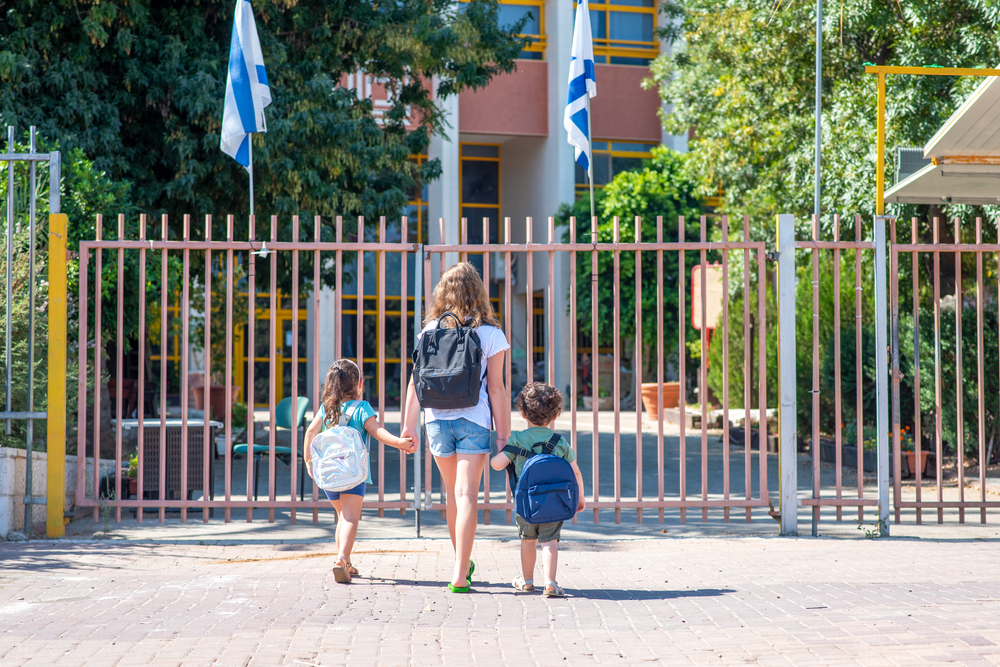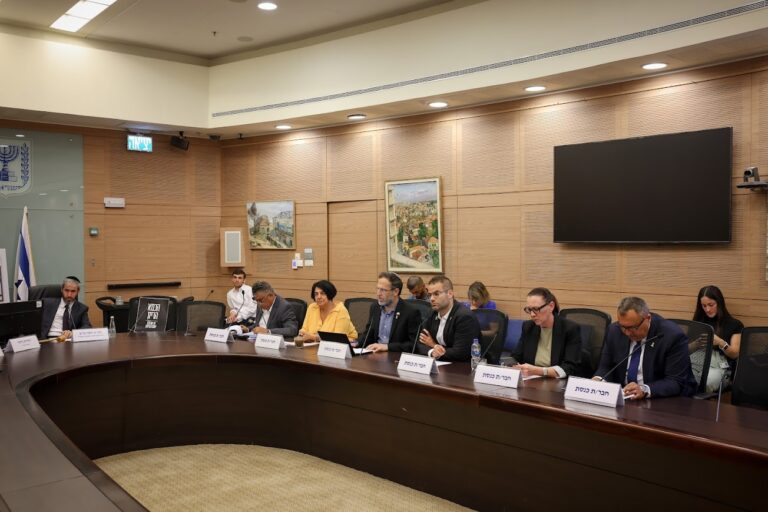
Late last month, the Knesset hosted a meeting to deal with the educational and emotional needs of children in the wake of Oct. 7. The day was intended to address the new school year in the south of Israel as well as the needs of children survivors and former hostages or relatives of hostages.
The Youth Committee addressed the academic needs of the students, and the Child Rights Committee dealt with the authorities’ treatment of children who lost a parent on Oct. 7.
According to data received from the Ministry of Defense and the National Insurance Institute, 643 children under the age of 18 who lost at least one parent, including 392 children of IDF and security forces. Fifteen of those children lost both parents.
This data, collected until February 2024, was commissioned by the Knesset's Information and Research Center and at the request of the Child Rights Committee.

The chair of the committee, Member of Knesset Eli Dellal from the Likud Party, said that dealing with such a high number of orphans and bereaved children requires a multisystem approach.
The committee addressing the start of the next school year for the students of the south mainly focused on the Western Negev. Deputy of the Southern District in the Ministry of Education Nir Shmueli presented the situations of different students from the region.
“There are students, such as in Sderot, who have returned to study in their original schools, and they will continue there in the next school year,” he explained. “Other students will study in educational frameworks where their communities and families are presently, whether it’s dozens of students in Eilat, or students from Nir Oz who will be absorbed in Kiryat Gat.”
According to Shmueli, the main problem at the moment is the uncertainty as to where, or if at all, to establish new schools.
“At this stage there is quite a bit of ambiguity regarding the return of the communities to their homes,” he said. “For example, the members of Kibbutz Kfar Aza have to decide if they will move to Kibbutz Ruhama, and then a local school will be potentially established for them there.”
Questions arise as to which authority should be making these decisions and when. Michal Uziyahu, head of the Eshkol Regional Council said that parents are waiting for decisions from the Ministry of Education.
“There are residents who have already returned to their homes and are considering leaving again because of the uncertainty,” she said. “Parents of preschool children are struggling, because there is no system of day care for them. Mothers are threatened with dismissal, but they are unable to return to work.”
In response to Uziyahu’s statement, Shmueli said that the committee is waiting to hear the solutions proposed by the Ministry of Education.
Another issue raised in the committee was the exclusion of Bedouins from the plan to rebuild the Western Negev, and the resulting impact on Bedouin students. A representative of the Forum for Coexistence in the Negev described the disparity faced by Bedouin youth.
“Seven Bedouin children were killed by missiles in the war,” she said. “Their families are not receiving proper psychological treatment. The family members of the Bedouin hostages do not receive appropriate psychological support either.” She noted that Bedouin towns in the Negev have access to only about half of the psychologists that are needed, compared to about 75% access in the Negev more broadly.
Throughout the day there were discussions about the appropriate educational tools to help these students return to school and deal with the war.
The director of the department for psychological services, Einav Lok, reported to the committee that the focus will be on individual students whose relatives were murdered or taken hostage rather than on specific areas. About 1,000 students have relatives who were kidnapped, and an additional 1,000 have relatives who were killed.
“We came to the conclusion that everyone should receive a response according to their needs,” she said. “Each child has a caseworker, and we receive many inquiries through them.”
Lok also noted that students who were freed from Hamas captivity “receive individual guidance and close monitoring. There are some who have not fully returned to school.”
The chair of the committee, Member of Knesset Naama Lazimi of the Labor Party, commented on the difficulty of returning to higher education after the war.
“How exactly are these young people supposed to go back to books and lectures, to tests and exercises?” she asked. “To study constitutional law or linear algebra, algorithms or literature of the 19th century, as if things never happened?”






